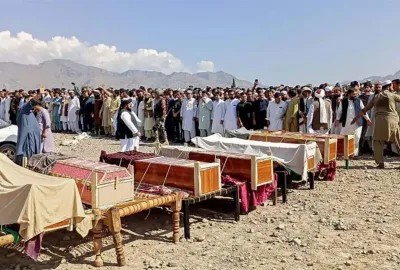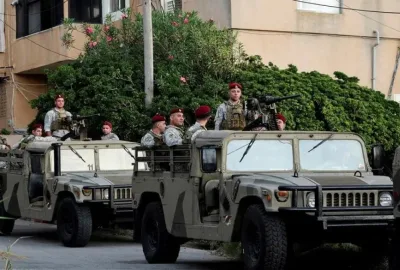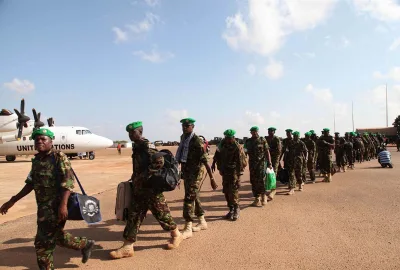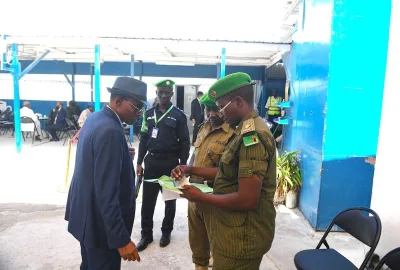Authorities in Somalia’s south-central Hirshabelle state must stop intimidating and censoring the press through arbitrary arrests…

Authorities in Somalia’s south-central Hirshabelle state must stop intimidating and censoring the press through arbitrary arrests and station closures because they disagree with reported content, the Committee to Protect Journalists said Friday.
On Friday afternoon, January 21, 2022, heavily armed Hirshabelle police in the regional capital of Beledweyne raided local independent radio station Hiiraan Weyn while it was on air, according to the station’s editor-in-chief Yasiin Ali Ahmed, who spoke to CPJ via messaging app, a joint statement by the Somali Journalists Syndicate (SJS) and Somali Media Association (SOMA), and a statement by the Federation of Somali Journalists (FESOJ). During the raid, officers forced the station off the air and detained seven journalists for six hours, according to those sources.
The raid followed the broadcasting of an interview with the Hiiraan People’s Liberation Front in Beledweyne, a group opposed to the current leadership in Hirshabelle, less than two hours earlier, according to the statement and Yasiin, who added that police used their weapons to break down a door to get into the station.
“The outrageous detention of the seven Hiiraan Weyn journalists and the temporary shutdown of the radio station shows a complete disregard for the right of journalists to work freely and without fear in Somalia,” said Angela Quintal, CPJ’s Africa program coordinator, in New York. “Threatening journalists with death in a country that has a culture of impunity for the murder of journalists sends a chilling message. Those responsible, no matter how senior, must be held accountable and their behavior must not be condoned.”
With 25 murders in the past decade still unsolved, Somalia tops CPJ’s annual Global Impunity Index as the country with the world’s worst record for bringing killers of journalists to justice.
The seven detained journalists – Yasiin, Abdullahi Ali Abukar, Mohamed Ibrahim Ahmed, Mohamed Osman Mohamud, Abdisamad Elmi Abdi, Abdimajid Dahir, and Mustaf Ali Addow – were taken to the Beledweyne Police Station, where they were held for six hours and told by police that they were “terrorists” who would be shot and killed for reporting on the Hiiraan People’s Liberation Front, according to the joint statement and Yasiin.
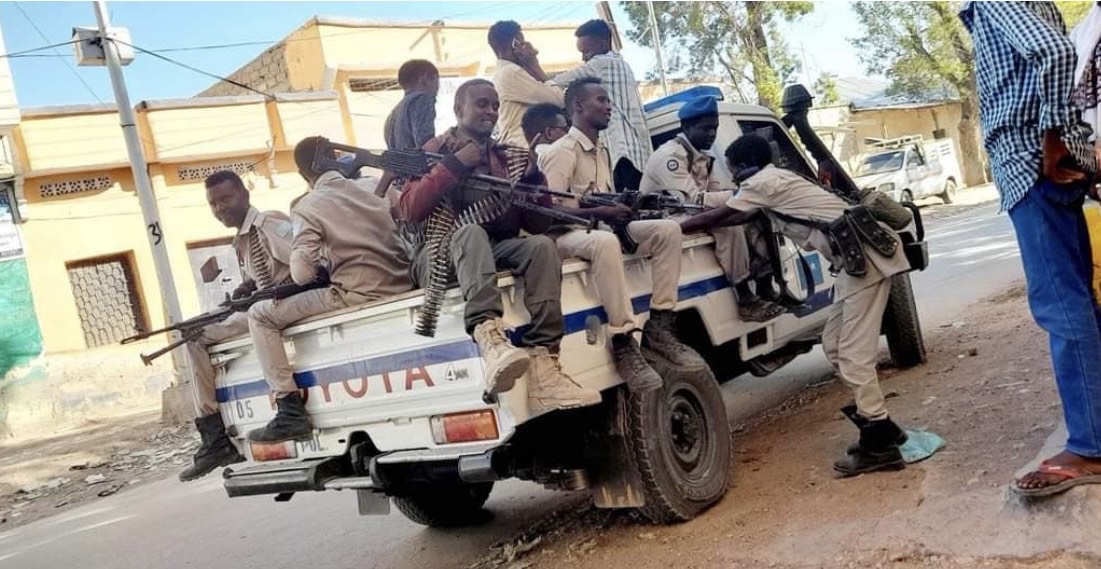
“We were detained without access to a lawyer or anyone,” Yasiin told CPJ. “We were told that if we were arrested again, we would be killed, but we will continue to do our work until we get justice or die.”
The journalists were eventually freed without charge after widespread calls for their release by citizens and journalists’ groups. None of the journalists were hurt and no equipment was seized during the raid, Yasiin told CPJ.
Later the same day, the journalists were taken to a house where Hirshabelle Deputy President Yusuf Ahmed Hagar, Hirshabelle Police Chief Colonel Hassan Dhi’isow, and Somali National Army Commander Colonel Mohamud Hassan Ibrahim were present, according to Yasiin and the SJS and SOMA statement.
“They threatened us with consequences if we continued to report anything critical of the Hirshabelle authorities,” Yasiin said. “We were told we would be killed next time if we were arrested again.”
The following day, on Saturday, January 22, 2022, Hiiraan Weyn returned on air.
FESOJ secretary-general Farah Omar Nur expressed concern in a news report about the continued clampdown on press freedom in Beledweyne, despite the training of police officers by media groups designed to support freedom of expression, according to the SJS and SOMA statement.
“SJS and SOMA are also concerned that police officers who committed these blatant violations and their commanders were trained and equipped with contribution funds provided by the British and German governments through a Joint Police Program with little or no accountability mechanism,” Abdalle Ahmed Mumin, SJS’s secretary general is quoted as saying in the joint statement, adding that protecting human rights includes protecting freedom of expression.
The British embassy in Mogadishu confirmed UK support for the Joint Police Program (JPP) in an emailed response to CPJ’s request for comment, saying that freedom of speech and a free press are crucial pieces of an inclusive political process.
“We have asked the JPP Secretariat to investigate these allegations,” Claire Blythe-Tinker, the second political secretary at the British Embassy told CPJ by email. “We await the outcome of this process and will also be in contact with the relevant authorities in Hirshabelle. However, as we have done in the past, we stand ready to suspend our support depending on the outcome of the investigation.”
The German Embassy said it is aware of the alleged incident at Hiiraan Weyn and is taking it very seriously, Judith Gosmann, the policy officer of the Somalia Unit told CPJ in an email, adding that, “Germany firmly reiterates its commitment to international human rights standards, particularly freedom of press and expression, and will deliver the (JPP) program in a manner that enhances these objectives and does not undermine them.”
Beledweyne Police Commissioner Mohamed Mohamud did not respond to several phone calls and messages sent by CPJ via WhatsApp. There was also no response to CPJ’s emails and phone messages to the offices of Yusuf and Mohamud.


